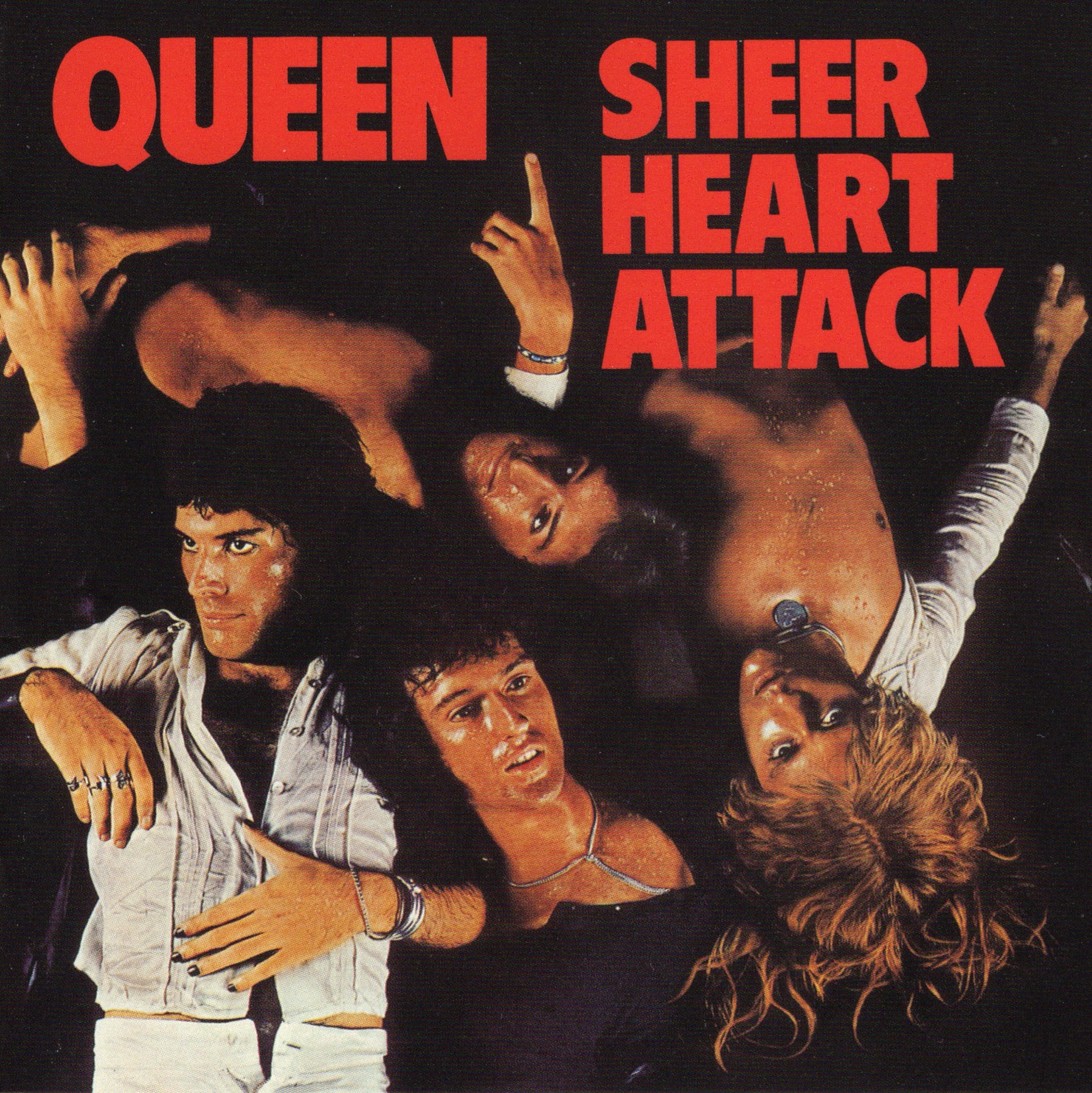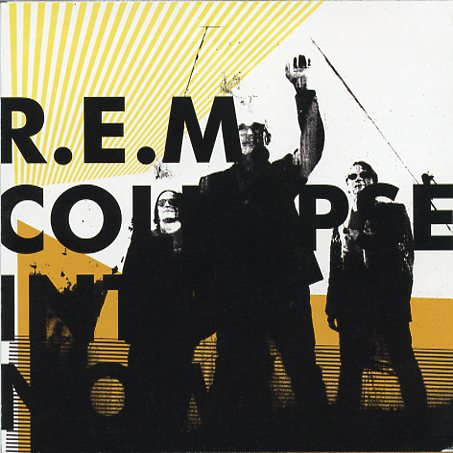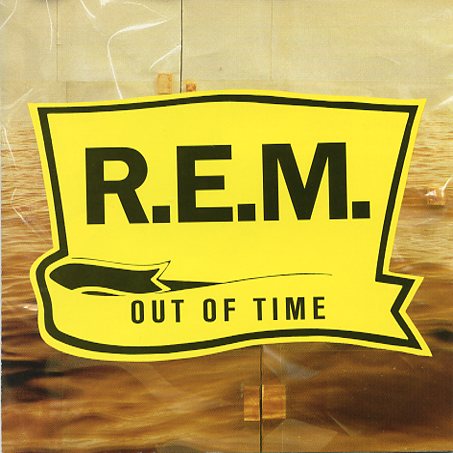by Bryce Napier
Genesis
released October 3, 1983
Atlantic Records
“The layers of mental baggage I carry around concerning Genesis make it nearly impossible to discuss them without a second luggage cart full of asterisks and caveats.”
From childhood through my preadolescent years, the influences that shaped my musical tastes could be expressed in diagram form by drawing a straight line down from my brother (two and a half years my senior) to me. I don’t think I was trying to ingratiate myself with him by adopting his preferences, or anything disingenuous like that; there just weren’t any other people in my life who were deeply into music, and I usually ended up liking what I was introduced to through him.
Genesis was different. Perhaps started as a failsafe against overlap with what my brother might pick when being allowed to choose a record to buy, I staked a claim on Genesis as a band that made music I liked. It may have been because my brother expressed a liking for them without quite being interested enough to acquire the albums; honestly, I don’t remember. Nonetheless, Genesis felt like “my” band, and was the first act to ever feel that way. Which is not to suggest that there weren’t complications. The layers of mental baggage I carry around concerning Genesis make it nearly impossible to discuss them without a second luggage cart full of asterisks and caveats.
For instance: Naively secure in my Genesis fandom, on one of those mid-‘80s record expeditions I confidently selected a Genesis album called Trespass. Upon listening to it for the first time, I hated it. Like, super-hated it. I was sure that they had pressed the wrong music on the vinyl, or that I’d accidentally gotten an album by a band called Trespass that had been misfiled under the album title, as it didn’t sound remotely like Genesis. This is when I learned that the band I thought of as Genesis—a trio comprising Phil Collins, Mike Rutherford and Tony Banks—had gradually evolved from a five-piece fronted by some dude called Peter Gabriel. If you’ve ever had a sip of iced tea when your taste buds were anticipating apple cider, you have some idea what I experienced. Tea can be great if that’s what you’re thirsty for, but in that moment of dashed expectations, it tastes like an abomination. Now imagine this was your very first exposure to iced tea. Because when it comes to Gabriel-era Genesis, I’ve never fully gotten that flavor of betrayal out of my mouth. It even resonates for me in Gabriel’s solo work. I think So, from 1985, is one of the greatest albums ever made, but the further you slip into his back catalog—the closer to song titles like “Moribund The Burgermeister”—the less I enjoy his work.
Phil Collins’s Genesis is unquestionably more popular than the Peter Gabriel version. Each of their last three albums—individually—outsold the entire six-album run of the Gabriel era. It’s possible that *every* album they released in the 1980s achieved that feat. However, as some illustrious person once said: popularity is the hallmark of mediocrity. The burgeoning music snob inside of me couldn’t reconcile that people who connected purposefully with music generally held the exact opposite opinion to mine; they felt that the real Genesis was the arty prog-rock ensemble led by Gabriel, and their subsequent albums just got more schlocky and embarrassing as time went on, sullying the legacy of a once-great band. As someone who would rather listen to “Paperlate” three times back-to-back than invest nine minutes of my life hearing “Firth Of Fifth” just once, it broke me a little to be lumped in with the uncultured masses.
By 1985, I was feeling quite a bit of embarrassment about my favorite band being Genesis. To compromise, I declared 1980’s Duke—a good album, an album I like—to be my favorite Genesis record, because it at least somewhat hearkened back to the early sound, and had some standing within the ranks of the Gabriel loyalists. Really, though? The self-titled smash hit record from 1983 is—and has always been—where it’s at.
It’s a curious thing when a long-running act decides to eponymously title an album deep into their discography. It always suggests to me that they believe themselves to have made a definitive statement, to have finally stumbled upon what they were always meant to become. In this case, they did it to stress the band’s identity over that of its individual members—most notably, of course, Collins, who had emerged since their previous album as a star in his own right—by having written the whole album as a unit, in their own recording studio in Surrey, christened The Farm.
Immediately undercutting their “We are Genesis” mission statement, though, the album opens with the song “Mama.” I think it’s a great track, but it feels more than a little like trying to Frankenstein together two recent Genesis-affiliated-but-ain’t-Genesis opening tracks: “Intruder,” from Peter Gabriel’s third solo outing; and “In The Air Tonight,” from Phil Collins’s Face Value. Tonally, it’s very much “Intruder,” with its creeping menace and unsettling subject matter. Structurally, it’s all “In The Air Tonight,” building in intensity, riding programmed drums through half of the song before allowing Collins’ thunderous drums to crash the party. And speaking of thunderous drums, the band brought Hugh Padgham along for the ride, who had engineered/produced both of the aforementioned songs, and created the now-infamous gated-drum sound that ruled the decade.
Frankly, it was a weird choice for a single, let alone the lead single for the album. The band members have described it as being a disturbed young man projecting his mother issues onto a prostitute who, naturally, has no feelings for him, but the actual lyrics don’t indicate the presence of a mother figure. It sounds like he’s got his actual mother tied up, berating her because she won’t have sex with him. The vocals become increasingly unhinged with loose repetition, and nothing gets resolved. It feels weird to call a deranged Oedipal breakdown a good song, but I do find it effective. That it can weather all the criticism I just threw at it and remain, to my mind, a great track, is a testament to its resilience. It was a Top Ten hit in loads of countries, too. It hit #4 in the UK, which is their highest singles chart showing ever there. It’s bizarre.
The second track (and also second single) is the much more conventional “That’s All.” It might be the only song on the record that’s not an elaborate set piece. It’s a midtempo lament about a guy who can’t seem to leave a relationship where he and his partner never seem to be happy with each other. Pretty straight love-gone-wrong song. This was the bigger hit in the US. It’s a pretty good little hook, but feels lightweight in comparison to everything else here.
The star of the show is “Home By The Sea” and its (mostly instrumental) companion piece, “Second Home By The Sea.” A “Hotel California”-type tale of a thief breaking into an abandoned house only to find he can never leave, it’s evocative without being heavy-handed. I can take paranormal underpinnings much more easily than fantasy references to enchanted forest creatures and such. The slightly-spooky melancholy pervades even the instrumental sections, and amounts to eleven minutes of goodness that demonstrates that I’m not allergic to long songs in and of themselves; it just needs to feel like a cohesive ride.
The album’s messiest legacy comes next, in the form of “Illegal Alien.” It’s both a super-catchy singalong and a (mind-bogglingly, through the modern lens) poorly-executed idea. My understanding is that the original inspiration came from their own difficulties in obtaining visas. So their first misstep was to creatively interpret that bureaucratic hassle as a feeling of being treated like ne’er-do-wells trying to sneak into the country. The second mistake was to solidify that narrative by casting themselves as Mexican characters trying to get into the US. The third was to gleefully populate this story with every lazy Mexican stereotype you can think of. And the fourth was, God help me, singing it in a bandito accent. Is good-natured racism a thing? I don’t think harm was meant (the protagonist is presented as something of a lovable scamp, no threat to anyone). Nor do I believe harm was, at the time, done. But then, I suppose that’s not my place to say. It wasn’t the first time Phil had adopted a dodgy accent to get into character; I didn’t even mention the demonic-Yoda-thing he did on “Mama.” Still, if your satire can be ingested at surface level that easily—enough so that those you disagree with could adopt it as an anthem; enough so that American Psycho’s Patrick Bateman has nothing but good things to say about it—then it was not particularly good satire. So I’m left feeling bad about kind of liking a song that is difficult to defend—that I don’t even want to defend—off of an album I do want to defend, by a band I loved but was embarrassed to admit that I liked, before hitting the same Phil Collins saturation point as much of the general public in the mid-to-late ‘80s; until, decades later, coming back around to it. I’m telling you, my pinballing feelings about Genesis on a band, album, and individual song level make the music almost impossible to assess with clarity.
The heavy-hitters all reside on side one. “Taking It All Too Hard” opens the second half, and was also a single, but is just a generic ballad that doesn’t sound much different from what Chicago or a dozen other AOR bands could have produced at the time. It doesn’t strike me as bad or hard to listen to. It’s competent. It’s just kind of there. “Just A Job To Do” is another one-act scenario: a hitman carrying out a contract on another hitman. It’s not really a character study; there’s no insightful reflection on the nature of the business, or paranoia about whether someone will come after him after the job is done. It’s a five minute gonna-getcha taunt. I like it, though I wouldn’t call it a highlight.
“Silver Rainbow” is interesting to me. It plays to me like a fever dream about a fever dream, with a loping, looping keyboard line nimbly bouncing off a driving drum pattern, coming together in lockstep for the chorus. Collins sings (more or less) about how lust and love eventually combine into a transcendent reality that indicates when lovers have truly connected. A bit silly, I suppose, but it’s a dark horse favorite. The closer, “It’s Gonna Get Better,” has always hit me like an extension of “Silver Rainbow.” It’s much lighter, but carries on the disorienting floaty-ness of the previous track. It doesn’t send the record off with a dramatic game-winning grand slam home run. It just drifts ever further into the ether until you can’t see it anymore. It almost doesn’t register to me as a song—just a very long coda. I like it well enough, but it’s one of those songs that I can never remember how it goes unless I’m currently listening to it.
I haven’t mentioned much about musicianship. That’s because it doesn’t stand out to me—and I mean that in the best way possible. I’ve listened to this album half a dozen times in the past month, not to mention the scores upon scores of times I played it as a kid, where I bonded with it on a molecular level. Yet I still couldn’t tell you if there are showcase solos on this album. I don’t think there are. There’s a restraint there to craft the songs with exactly what they need, without leaving wide open spaces for the look-at-what-I-can-do noodling that puts me off prog. Even the instrumental “Second Home By The Sea” is carried by a keyboard line simple enough that I learned to play along with it as a teen—and I suck at keyboards. This record flows through me, where the bass on this song might catch my ear on a particular play-through, or a turn of phrase on that song. But they never become the primary things that I notice from that point forward when I hear them. I’ve been intimately close to it, and also completely forgotten about it for years at a time. But there’s no denying, at long last, complicated history be damned, that it is a foundational block of my musical identity.

















